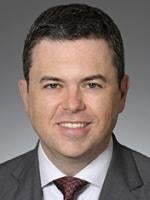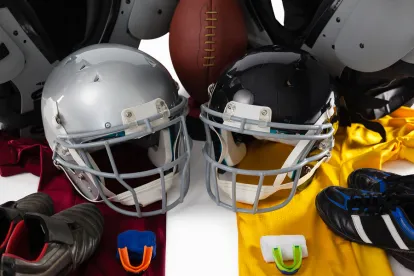In our Spring 2021 issue, we wrote about potential new advertising opportunities concerning the Name, Image and Likeness (NIL) rights of student athletes. There were several balls in the air:
-
An antitrust challenge to NCAA rules was pending before the Supreme Court.
-
The first state law granting NIL rights to college athletes was poised to go into effect.
-
Several bills had been introduced in the US Senate and House of Representatives.
-
The NCAA had tabled amendments to its bylaws that would permit student athletes to benefit from the use of NIL.
We’re coming back to you now in the third quarter to provide an update and a bit of a play-by-play recap.
On June 21, the US Supreme Court issued an opinion in National Collegiate Athletic Association v. Alston. The Court unanimously upheld the lower court’s injunction against rules restricting education-related expenses. It found the NCAA and its members qualified as a monopoly power in the relevant market and imposed rules that were stricter than necessary to achieve their procompetitive purpose of preserving consumer demand for college sports. In a concurring opinion, Justice Kavanaugh noted the narrowness of the Court’s ruling, but he stated that “the NCAA’s remaining compensation rules also raise serious questions under the antitrust laws.” In short, the Court held only that NCAA rules that restricted education-related expenses that could be paid to student-athletes stood in violation of antitrust laws, but it left a rather strong impression that other NCAA restrictions may pose the same problem. Perhaps sensing a slam-dunk opportunity, attorneys have already filed new lawsuits challenging some of those restrictions.
Although Congress has faced pressure to adopt a uniform law to address NIL rights and endorsement deals for student-athletes, it has yet to do so. In the absence of a federal law, many states quickly got off and running with their own acts. California was first off the line with the Fair Pay to Play Act, but that law does not go into effect until 2023. Florida closed the gap and was first across the goal line, with a law that went into effect July 1. That law provides that college athletes may earn market-value compensation from third parties (not from the school) for their NIL rights and that colleges may not adopt or maintain contracts or rules that unduly restrict those rights. Nor may they unduly restrict student athletes’ ability to engage agents for the purpose of securing such compensation for NIL rights.
State recognition of NIL rights for student-athletes is quickly becoming par for the course. Laws similar to those signed in California and Florida have now been adopted in over half of states and have taken effect in over a dozen, including many with popular teams in the SEC, AAC, and Big 10 Conference. The NCAA has responded with an interim NIL policy that went into effect July 1 for all three of its divisions. Students can now engage in NIL activities that are consistent with the law of the state in which their school is located. Students located in other states, to the extent they can find a means to exploit NIL rights, also will not be in violation of NCAA rules.
Thousands of players have picked up small endorsement deals. The Wall Street Journal reported in July about a local BBQ joint in Arkansas swooping in to strike a deal with some of the University of Arkansas’ quarterbacks and offensive line. The restaurant gets to use them in social media promotion and the players get paid in merchandise and brisket. For some, the payout has been significantly higher. Prior to joining Tennessee State’s basketball team, 19-year-old Hercy Miller reportedly signed a $2 million deal with Web Apps America. Miller’s father is the son of rapper Master P, so he may have had a leg up on representation, but NIL consultancy firms have already stepped up to the plate to represent others and take their cut.
For many, including the NCAA, a uniform federal law remains the goal. But states have been quick to get with the program, and financial opportunities for student-athletes (and brands) seem to be coming fast and furious




 />i
/>i
